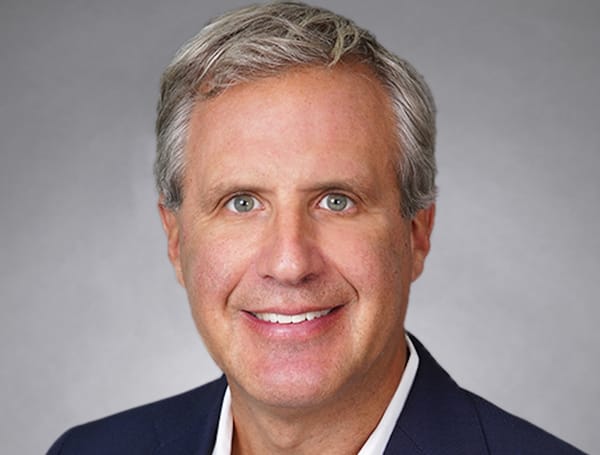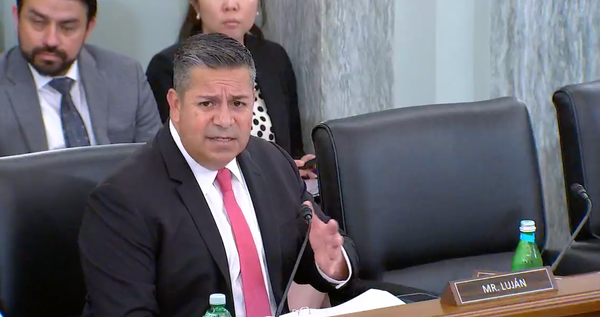Bruce Kushnick: Look Overseas, America's Prices for Broadband are Out of Control
America's prices are 5–10 times higher than comparable data from other countries.

This chart, taken from the European Union Report on Broadband, shows that a triple play — phone, cable TV, broadband-Internet, can cost about 36 Euros for a service with 30–100 Mbps speeds, and 21 Euros for a stand alone service.

The average U.S. triple play is about $220.00 a month, and with an exchange rate of 1 Euro=$1.09 Dollars, the overcharging, which we documented, is $150+ a month — or more.
The Digital Divide was created, in large part, because prices are unaffordable, and America is now paying for over 20 million low-income families to have broadband — up to $30. a month allowance.
America’s prices are out of control, yet where are the investigations and audits to explain how overseas prices are a fraction of what we are paying in the U.S.? And why are we giving billions to the companies that helped to create the Digital Divide in the first place?
We assembled our previous research with new findings in this new series, using both 3rd party expert analysis as well as actual examples from December 2023, comparing and detailing the out of control US prices vs the services of free Telecom in France and Spectrum-Charter in New York City.
America’s broken promises and the state 5-year broken broadband plans
America’s prices for broadband have made high speed internet unaffordable for many households, Moreover, the pandemic revealed a major Digital Divide where whole areas of the U.S. were never upgraded to fiber optic networks, much less high speed services even over the copper wires. Thus, no competition to lower rates.
And every state now has plans to ‘bridge the Digital Divide’, but in all of the state broadband plans, none have addressed how the Divide started in their state or about the massive financial price divide between America and the EU or Asian countries that charge a fraction of the prices charged in the US.
Over $150 billion is being given out in state and federal government subsidies over the next few years, and much of It going to the companies that helped to create the Digital Divide.
The states must investigate the core issues as they impact almost every FCC, NTIA, FTC, Congressional and state current and future actions.
The opening chart tells the tale of how the European countries did not allow for massive multiple additional made up fees, such as the Broadcast-Sports fee ($27.90 on a Spectrum Triple Play). Moreover, the services do not charge ridiculous prices for equipment, such as set top box, that is required to use the service. Also, because there is competition, customers have choices and prices have not skyrocketed, but are actually going down.
America’s prices are 5–10 times higher than comparable data from other countries
How can America’s prices for the stand-alone, double and triple play — (phone, cable TV and ISP-broadband) be 5–10 times more when comparing data from other countries, as highlighted in the European Union Commission’s report, published July 2022 for the year 2021. And, as the report details, even basic stand-alone high speed broadband prices overseas are a fraction of what we’re paying in the U.S.
- America’s “Double play” — high speed broadband and phone service — is being overcharged, on average, almost $75 a month — a whopping $900 a year.
- The “Triple play” is being overcharged by $180 a month on average; this comes to overcharged, over $2,200 for the triple play.
The current triple play in America, after the promotional prices end, is now around $220.00 a month, yet overseas, the average was around $40 a month, but the prices overseas are in decline. However, in some countries, it can be as low as $23.00 for 200 Mbps or more; only $15 for the double play.
According to the EU report, we’ve even been beaten out by Bulgaria, Romania and let’s not forget Slovakia:
- “Overall, Lithuania and Romania have the most attractive prices for broadband internet in the EU. All the offers in these countries belong to the cluster of the least expensive countries in their respective baskets. Bulgaria, Latvia and Slovakia follow. Poland, Hungary, France and Spain have low prices especially for Triple Play.”
But when the EU report says prices are “attractive”, we are talking $10–12 bucks a month for stand-alone broadband and $20–23 for the triple play, with speed of 200 Mbps or more.
By the way, Bulgaria does get Netflix and their Top 10 shows are close to America’s viewing.
How is it possible that America’s Triple Play is $150-$200 a month over what is being charged overseas? That’s over $2,200.00 a year ‘extra’ being charged to families — including low-income families and fixed income seniors. This is on top of the fact that there could be only one or no providers of high-speed services in the rural regions or in low-income neighborhoods of cities.
It would be one thing if it was a small differential between the overseas EU group and others price of service, but this is a difference that is too large to be ignored.
What are the underlying issues?
No Serious Competition to keep market forces and rate increases at bay. First, AT&T et al. failed to show up with high-speed competition to keep the cable companies, the other group of providers that use a wired connection, in check. For example, in CA, AT&T-Pac Bell had obligations to bring fiber optic broadband throughout the state and our maps showed that much of AT&T’s entire Los Angeles county region had been left to deteriorate and not upgraded as promised with fiber optic infrastructure.
Made-up Fees and surcharges are out of control. One of the sleaziest practices in the US has become the addition of made-up taxes, fees and surcharges that are not mandated or government sanctioned. This is being done so that the companies can quote a price that is missing 20–40% of the total costs,
Made-Up Taxes include:
- Broadcast and Sports surcharge: $15–24.00 a month
- Cost Recovery Fee: $1.99–2.99
- Admin Fees: $1.49-$2.99 per month
- Pass-through taxes, Gross receipts tax, telecom taxes
The largest and most egregious added fee is now the Sports and Broadcast surcharge, which is really 2 separate charges that have been merged in many cases:
“Made-up, Broadcast-Sports Fees Up 820%; Overcharging $250+ a Year — then Quintuple-Taxed, Fee’d and Surcharged.” This article was written in December 2021, and along the way there have been increases bringing the total charge on the Spectrum NY June 2022 bill to $23.70 a month. This one fee on the Spectrum NY Triple play bill is more than the entire charges for a triple play in many overseas EU countries.
This charge went up to $27.90 a month extra in 2023. That is an overall increase of 1,140%.
- Quadruple Taxed, Fee’d and Surcharged. — If the increases to this one fee is not enough, there are made-up taxes, fees and surcharges being applied to this fee as it is considered ‘revenue’ to the company and is taxed as such. And some of these surcharges are actually tax pass-throughs where the company gets to have the customer pay the company’s taxes.
- It is impossible to calculate the exact tax assessment as there is no ‘Rosetta Stone’ to be able to unravel how each tax, fee and surcharge is applied.
But, considering that basic telecom taxes can be 12–20% depending on the city and state, if a 15% tax is applied, that would add an additional $3.55 more per month.
- Not included in the advertised price: To add irony to obfuscation, this fee is never included in the advertised rates, nor is it added completely in the promotional price, making the increases after the promotion even more egregious.
- Not included in the EU statistics for the U.S. Triple Play: Ironically, the EU informed us that they do not include the extra charges and fees in the US because — well, the other countries only have a VAT (Value Added Tax), and not the made-up fees.
- No Oversight, No Audits; Regulators Failed U.S.: The idea that a state-franchised cable service or the Holding Companies that control the state telecommunications public utility can just make up fees and add them to bills with no one asking for a cost analysis or some other justification to raise this make-believe charge, should have the peanut gallery screaming.
- Public has Amnesia: No one knows who these local telecom companies are or what they’ve been able to get away with. And virtually no one could answer basic questions about who the companies are or the services they offer.
- Let’s give government subsidies to keep America in a perpetual state of “Please Sir May I have another?” Currently there are subsidies being given to low-income families to go online, which are then handed over to the same companies that have caused this Divide in the first place; i.e.; a new flavor of Corporate Welfare. We will address these issues in an upcoming story.
The telecom holding companies that control the critical infrastructure wires, towers and antennas created the Digital Divide. They also control the pricing of all services, wireline, wireless, broadband, internet and even cable, and as we will discuss, they also were able to manipulate the accounting formulas to have the state telecom utility act as a cash machine to fund, illegally, the other lines of business.
America must go after these cooked books and must clean up the mess. There is plenty of money to get America upgraded, and it must be seen as the first step in LA County to clean up the mess and decades of public policy and regulatory issues.
Government subsidies, both state and federal, to companies who have created the Digital Divide and can control the prices and profits over the public utility wires needs immediate investigations — not more gifts of largesse.
Bruce Kushnick is Executive Director of New Networks Institute and a founding member of the Irregulators. He has been a telecom analyst for 40 years, and playing the piano for 65 years. A version of this piece originally appeared on Medium on January 9, 2024, and is reprinted with permission.
Broadband Breakfast accepts commentary from informed observers of the broadband scene. Please send pieces to commentary@breakfast.media. The views expressed in Expert Opinion pieces do not necessarily reflect the views of Broadband Breakfast and Breakfast Media LLC.










